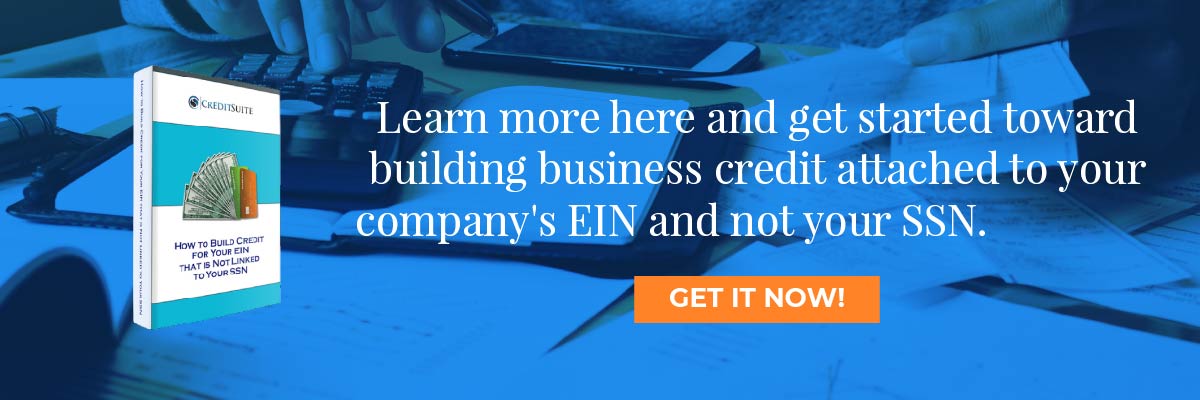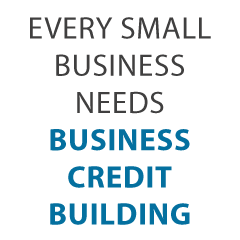- Connect With Us!
- (877) 600-2487
- info@creditsuite.com
How to Set Up a New Business in Vermont
Published By Janet Gershen-Siegel at July 17th, 2019
Starting a Business in Vermont
A new business in Vermont is not out of reach. So have you been wondering: how do I start a business in Vermont? And more importantly, can I do so no matter what the economic conditions are? Can I start a new business in Vermont during a recession?
New business in Vermont: Advantages and Disadvantages
Business Insider called Vermont the third worst state to start a new business in, per a 2016 article. So this is for the whole nation. There are high costs but also few employees for hire. There are around 11,000 unemployed Vermont adults and also around 3,000 open jobs.
So 1.29% of the working population is available to work at a new business. Contrast with the best state (Wyoming). Wyoming has more than double (2.73%) employees available for startup companies. Also, Vermont had the second lowest density of startup businesses. There were fewer than 54 new businesses per 1,000 firms.
Vermont, though, with its proximity to New Hampshire, can potentially seek employees there.
Recent Changes?
In 2018, Forbes ranked Vermont at number 47 – not much of an improvement there. Also in 2018, Fit Small Business clocked Vermont in at number 28.
So, why the difference? First of all, keep in mind these three sites all have different methodologies.
Fit Small Business praises Vermont for its #1 quality of life and its #4 labor market. The labor market is a measurement of both the desirability of an area and the number of people with bachelor degrees. Vermont also scores well for the costs of starting a business.
But then it all goes off the rails. Vermont is in the ten worst states for taxes, cost of living, startup activity, and access to capital. In truth, if Vermont didn’t have such a good quality of life, Fit Small Business probably would have ranked them in the bottom of the 30s.
Forbes says Vermont has a decent labor supply and quality of life. Note: quality of life does have some subjective factors. But then there are four areas where it is in the bottom ten states. These include regulatory environment and economic climate. Business costs are also bad. But it’s growth prospects which are truly abysmal, ranking at #49. Only Mississippi ranks worse.
Only you can decide if it’s worth it to start a new business in Vermont.
New Business in Vermont: Initiatives
However, Vermont is also showing growth in many sectors. This includes manufacturing. The state’s government is taking an active role in trying to encourage economic growth. This is being done by heavily investing in and developing infrastructure to support that growth. Also, Vermont is pushing several key economic development initiatives.
Start a New Business in Vermont – Vermont Top Industries
As might be expected, tourism and maple syrup still represent rather large industries in Vermont. Smart business owners may see new business opportunities in catering to both of these niches. So these can be in industries which would include camping equipment, hospitality, and athletic and also cold weather apparel.
Per the Vermont office state website, Think Vermont, the biggest industries in Vermont are software development and IT, and also manufacturing. More top Vermont industries are financial services and insurance and also renewable energy and green businesses. Yet more top industries in Vermont are tourism and outdoor recreation; and also food, beverage, and consumer goods. More Vermont top industries are education; health care and social assistance; and also professional and creative services.
Start a New Business in Vermont – Vermont Business Ideas
Smart business owners can always find new opportunities. Work with bigger industries in the state. Offer goods or services such as hospitality, transportation, and also trucking for any industry. Other ideas are developing and also distributing safety equipment. Another idea is computer support such as programming and also data, for example.
Here is how to start a new business in Vermont.
Start a New Business in Vermont – Vermont New Business Secretary of State Requirements
Register a Business Name
Register a business name on the Vermont Secretary of State’s website.
Corporations
Vermont corporation names must be unique. Before deciding on a name, search online records and also other records to determine if the name is already in use. Start with the online database of registered Vermont corporations available at Vermont Corporation in the Vermont Secretary of State website.
Corporate Name Reservations
It is not necessary to reserve a corporate name before filing to incorporate. But if a business owner wants to reserve a name before the time they can file to incorporate, submit a name reservation application to the office of the Vermont Secretary of State. Find and download the name reservation application form at Reserve a Vermont Corporation Name in the Vermont Secretary of State website. The corporate name is then reserved for 120 days. There is a filing fee of $20.00.
Business Permits and Licenses
The Secretary of State has a list of professions which require licenses.
Local Permits and Licenses
Consult a useful PDF. It lists many of the town and city clerks in Vermont.
Start a New Business in Vermont – Business Registration
Get set up with the Vermont Secretary of State Online Business Registration Guide. But if you need more information or forms, check out the Start or Register a Business page.
Tax Registration
To take care of tax registration, go to the Vermont Department of Taxes.
Start a New Business in Vermont – Virtual Offices
Alliance and Regus do not offer Vermont virtual business offices.
DaVinci offers Vermont virtual business office space in Burlington and Shelburne. Business owners in Montpelier or Rutland, and in other parts of the state, should ask local business owners. Also try computer groups for help in this area. Other options may be virtual business office space in nearby states. These are Massachusetts, New Hampshire, and also New York.
Start a New Business in Vermont – Build Business Credit
Business credit is credit in a company’s name. It doesn’t tie to a business owner’s personal credit, not even when the owner is a sole proprietor and the only employee of the business.
Therefore, an entrepreneur’s business and consumer credit scores can be very different.
The Benefits
Given that small business credit is independent from personal, it helps to safeguard a small business owner’s personal assets, in case of court action or business bankruptcy.
Also, with two separate credit scores, a small business owner can get two separate cards from the same vendor. This effectively doubles purchasing power.
Another advantage is that even startups can do this. Going to a bank for a business loan can be a recipe for frustration. But building company credit, when done right, is a plan for success.
Consumer credit scores are dependent on payments but also additional considerations like credit use percentages.
But for company credit, the scores really only hinge on if a small business pays its invoices punctually.
Learn more here and get started toward building business credit attached to your company’s EIN and not your SSN.
The Process
Building small business credit is a process, and it does not occur without effort. A business has to proactively work to build business credit.
However, it can be done easily and quickly, and it is much speedier than building personal credit scores.
Merchants are a big aspect of this process.
Accomplishing the steps out of sequence will cause repetitive denials. Nobody can start at the top with company credit. For instance, you can’t start with retail or cash credit from your bank. If you do, you’ll get a rejection 100% of the time.
Start a New Business in Vermont – Business Fundability
A business has to be fundable to lending institutions and merchants.
For this reason, a company will need a professional-looking web site and email address. And it needs to have site hosting bought from a supplier like GoDaddy.
Additionally, company telephone and fax numbers should have a listing on ListYourself.net.
At the same time, the business telephone number should be toll-free (800 exchange or the equivalent).
A small business will also need a bank account dedicated solely to it, and it needs to have all of the licenses necessary for operation.
Learn more here and get started toward building business credit attached to your company’s EIN and not your SSN.
Working with the Internal Revenue Service
Visit the Internal Revenue Service website and obtain an EIN for the business. They’re free. Choose a business entity like corporation, LLC, etc.
A small business can begin as a sole proprietor. But they will most likely wish to change to a form of corporation or an LLC.
This is in order to reduce risk. And it will make best use of tax benefits.
A business entity will matter when it comes to taxes and liability in case of a lawsuit. A sole proprietorship means the entrepreneur is it when it comes to liability and taxes. No one else is responsible.
Sole Proprietors Take Note
If you run a company as a sole proprietor, then at the very least be sure to file for a DBA. This is ‘doing business as’ status.
If you do not, then your personal name is the same as the small business name. Consequently, you can wind up being personally liable for all company debts.
In addition, per the Internal Revenue Service, by having this structure there is a 1 in 7 chance of an IRS audit. There is a 1 in 50 possibility for corporations! Steer clear of confusion and considerably decrease the chances of an IRS audit simultaneously.
Starting the Business Credit Reporting Process
Start at the D&B web site and get a totally free D-U-N-S number. A D-U-N-S number is how D&B gets a small business into their system, to produce a PAYDEX score. If there is no D-U-N-S number, then there is no record and no PAYDEX score.
Once in D&B’s system, search Equifax and Experian’s websites for the business. You can do this at fastcs.wpengine.com/reports. If there is a record with them, check it for accuracy and completeness. If there are no records with them, go to the next step in the process.
By doing this, Experian and Equifax will have something to report on.
Vendor Credit Tier
First you need to establish trade lines that report. This is also known as the vendor credit tier. Then you’ll have an established credit profile, and you’ll get a business credit score.
And with an established business credit profile and score you can start to obtain credit in the retail and cash credit tiers.
These types of accounts tend to be for the things bought all the time, like marketing materials, shipping boxes, outdoor work wear, ink and toner, and office furniture.
But first of all, what is trade credit? These trade lines are credit issuers who will give you initial credit when you have none now. Terms are commonly Net 30, instead of revolving.
Therefore, if you get approval for $1,000 in vendor credit and use all of it, you need to pay that money back in a set term, such as within 30 days on a Net 30 account.
Details
Net 30 accounts have to be paid in full within 30 days. 60 accounts must be paid completely within 60 days. In comparison with revolving accounts, you have a set time when you must pay back what you borrowed or the credit you used.
To launch your business credit profile the proper way, you should get approval for vendor accounts that report to the business credit reporting agencies. As soon as that’s done, you can then make use of the credit.
Then pay back what you used, and the account is on report to Dun & Bradstreet, Experian, or Equifax.
Vendor Credit Tier – It Helps
Not every vendor can help in the same way true starter credit can. These are merchants that will grant an approval with negligible effort. You also need them to be reporting to one or more of the big three CRAs: Dun & Bradstreet, Equifax, and Experian.
You want 5 to 8 of these to move onto the next step, which is the retail credit tier. But you may need to apply more than once to these vendors. So, this is to validate you are dependable and will pay promptly.
Retail Credit Tier
Once there are 5 to 8 or more vendor trade accounts reporting to at least one of the CRAs, then move onto the retail credit tier. These are businesses such as Office Depot and Staples.
Only use your SSN and date of birth on these applications for verification purposes. For credit checks and guarantees, use the small business’s EIN on these credit applications.
One good example is Lowe’s. They report to D&B, Equifax and Business Experian. They want to see a D-U-N-S and a PAYDEX score of 78 or better.
Fleet Credit Tier
Are there 8 to 10 accounts reporting? Then progress to the fleet credit tier. These are service providers like BP and Conoco. Use this credit to purchase fuel, and to repair, and take care of vehicles. Only use your Social Security Number and date of birth on these applications for verification purposes. For credit checks and guarantees, make sure to apply using the company’s EIN.
One such example is Shell. They report to D&B and Business Experian. They need to see a PAYDEX Score of 78 or more and a 411 small business telephone listing.
Shell may say they want a certain amount of time in business or revenue. But if you already have adequate vendor accounts, that won’t be necessary. And you can still get approval.
Learn more here and get started toward building business credit attached to your company’s EIN and not your SSN.
Cash Credit Tier
Have you been sensibly managing the credit you’ve up to this point? Then progress to the cash credit tier. These are service providers such as Visa and MasterCard. Only use your SSN and date of birth on these applications for verification purposes. For credit checks and guarantees, use your EIN instead.
One such example is the Fuelman MasterCard. They report to D&B and Equifax Business. They want to see a PAYDEX Score of 78 or better. And they also want you to have 10 trade lines reporting on your D&B report.
Plus, they want to see a $10,000 high credit limit reporting on your D&B report (other account reporting).
Also, they want you to have an established company.
These are service providers such as Walmart and Dell, and also Home Depot, BP, and Racetrac. These are normally MasterCard credit cards. If you have 14 trade accounts reporting, then these are doable.
Monitor Your Business Credit
Know what is happening with your credit. Make sure it is being reported and address any errors ASAP. Get in the practice of taking a look at credit reports and digging into the particulars, and not just the scores.
We can help you monitor business credit at Experian and D&B for 90% less than it would cost you at the CRAs. See: fastcs.wpengine.com/monitoring.
Update Your Data
Update the data if there are mistakes or the information is incomplete.
Fix Your Business Credit
So, what’s all this monitoring for? It’s to contest any errors in your records. Errors in your credit report(s) can be corrected. But the CRAs typically want you to dispute in a particular way.
Disputes
Disputing credit report mistakes generally means you send a paper letter with copies of any proof of payment with it. These are documents like receipts and cancelled checks. Never mail the originals. Always mail copies and retain the originals.
Fixing credit report mistakes also means you precisely spell out any charges you contest. Make your dispute letter as crystal clear as possible. Be specific about the issues with your report. Use certified mail so that you will have proof that you sent in your dispute.
A Word about Business Credit Building
Always use credit responsibly! Never borrow more than what you can pay off. Keep track of balances and deadlines for repayments. Paying in a timely manner and fully will do more to raise business credit scores than just about anything else.
Growing small business credit pays off. Great business credit scores help a company get loans. Your lending institution knows the small business can pay its debts. They understand the company is authentic.
The business’s EIN attaches to high scores and loan providers won’t feel the need to call for a personal guarantee.
Business credit is an asset which can help your business for years to come.
Learn more here and get started toward opening a new business in Vermont.
Want to start a new business someplace else in America? Then check out our handy guide to starting a business in any state in the country.
Vermont’s Response to COVID-19
Here’s what Vermont is doing about COVID-19. On or about March 11, Governor Phil Scott declared a state of emergency. The SBA will be able to provide Economic Injury Disaster Loans (EIDLs) under a Governor’s Certification Disaster Declaration.
The Agency of Commerce and Community Development is looking for data on impacts in the following areas:
- Economic Injury
- Supply Chain
- Workforce (Including that caused by lack of childcare)
- Business Travel
- Visitor Travel and Tourism Activities
- Remote Work Capabilities.
Vermont Disaster Recovery Guides
Contact a Vermont State Business Development Center for a disaster recovery guide. See: accd.vermont.gov/about-us/disaster-planning/covid-19-guidance-vermont-businesses?fbclid=IwAR34-1JU65wcSZXUFVLymcdFhMmRKe_Rzytsj8HGZmfwq0QWatmCGQ-PstY and vtsbdc.org/disaster-recovery

 " class="attachment-blog-single size-blog-single wp-post-image" alt="Get Business Credit Cards for New Businesses Credit Suite-Business Line of Credit Decoded" title="Get Business Credit Cards for New Businesses">>
" class="attachment-blog-single size-blog-single wp-post-image" alt="Get Business Credit Cards for New Businesses Credit Suite-Business Line of Credit Decoded" title="Get Business Credit Cards for New Businesses">>
